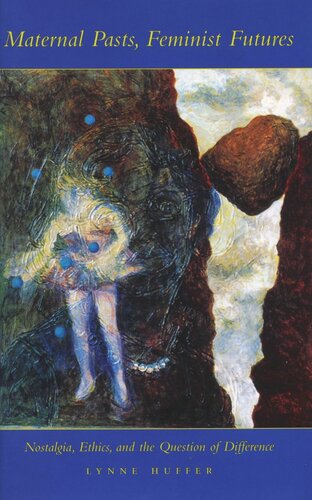

Most ebook files are in PDF format, so you can easily read them using various software such as Foxit Reader or directly on the Google Chrome browser.
Some ebook files are released by publishers in other formats such as .awz, .mobi, .epub, .fb2, etc. You may need to install specific software to read these formats on mobile/PC, such as Calibre.
Please read the tutorial at this link: https://ebookbell.com/faq
We offer FREE conversion to the popular formats you request; however, this may take some time. Therefore, right after payment, please email us, and we will try to provide the service as quickly as possible.
For some exceptional file formats or broken links (if any), please refrain from opening any disputes. Instead, email us first, and we will try to assist within a maximum of 6 hours.
EbookBell Team

4.0
96 reviewsThis book examines the relations among nostalgia, gender, and foundational philosophies through a critique of the lost mother as a ground for thinking about sexual difference. More specifically, the author critiques the nostalgic tendencies of feminist theory, arguing that an emancipatory system of thought must move beyond a maternally oriented structure. Through close readings of works by Maurice Blanchot, Luce Irigaray, Julia Kristeva, and Nicole Brossard, the book elucidates the many dimensions of nostalgic paradigms—literary, psychoanalytic, epistemological, ontological, and sociopolitical. This critique ultimately confronts postmodernism, and especially the burgeoning field of performative theory, as an intellectual paradigm that claims to subvert systems of meaning. Analyzing the writings of J. L. Austin, Judith Butler, and Irigaray, the author argues that despite its antinostalgic structure, performative theory provides an inadequate model for understanding the connections among language, identity, and the social bonds that constitute the ethical and political sphere. Asserting, through the example of performative theory, that a critique is not enough, the book examines the possibility of a constructive model that is both non-nostalgic and informed by ethical constraints. One such model is offered through a reading of the Quebecois writer Nicole Brossard, which explores her work in relation to the question of lesbian writing. Demystifying nostalgia, Brossard not only uncovers and subverts the structures through which a concept of origins is produced, but also provides a different, visionary way of thinking about the relationship between subjectivity and language. Finally, the book argues for further feminist work on the relationship between narrative and ethics, a field whose future lies in the elaboration of a bridge between the moral commitments of ethical theory and the fractured realities that find their expression in literary forms.